Anna McQuinn – let’s have a world full of stories for everyone
Published on: 03 July 2017 Author: Alex Strick
Anna McQuinn has written dozens of picture books. She tells why she's so incredibly passionate about letting every child feel like they're the star of the story - and in the most ordinary way.
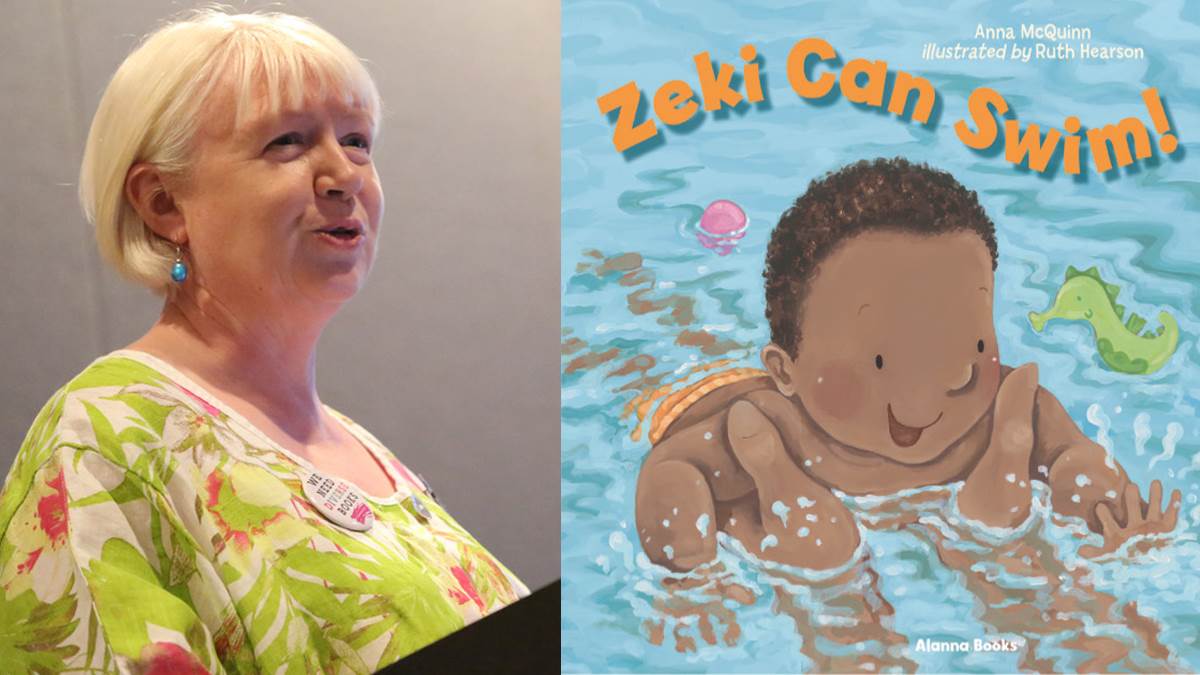
You and Alanna Books are probably best known for your books about Lulu. These are enormously successful, particularly in the States (Where she is known as Lola).
What do you think has caused this huge popularity?
I think primarily she is so cute and gorgeous! I'm so lucky that the enormously talented Ros Beardshaw does the illustrations, because Lulu is so adorable. People just pick up the book and want to read about her.
When and where did Zeki first appear? And is he also making his name across the pond?
Well, he first appeared in the third Lulu story - Lulu Reads to Zeki - which is a 'new sibling' story. Being Lulu, every time Zeki cries, she tries to soothe him with an appropriate story. Then I got the idea of making him the hero of his own stories.
He's doing well in the US, also (where he is called Leo). I think people are particularly responding to his relationship with his dad in the second story, Zeki Can Swim! A lot of us are a bit tired of seeing dads look silly in books - here, Dad is caring and competent as he takes Zeki for his swimming lesson.
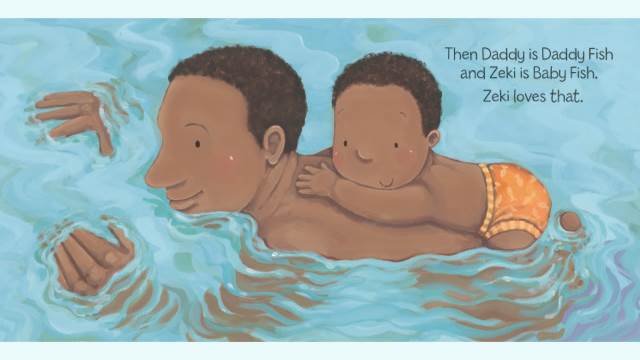
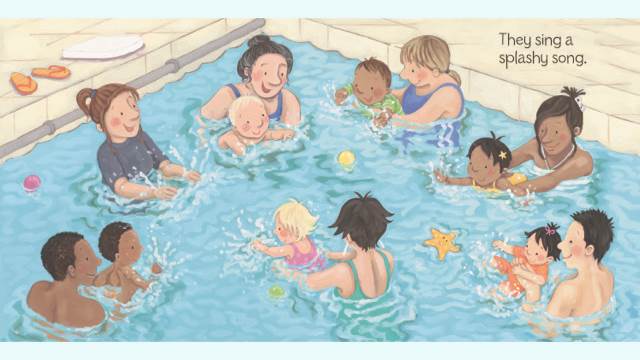
This book sees Zeki going to swimming class with his friends, one of whom happens to have a foreshortened arm.
Why did you choose this particular book to include disability in this way?
I think books about race or disability are important, but I also think it is really necessary for children of all sorts to star in books in an ordinary way - to just be. I'm always on the look out for opportunities to include lots of different children naturally in my stories and it seemed to me that this was an appropriate one.
In a swimming pool when everyone is in swimsuits, many kinds of disability we don't notice in other contexts become more obvious. So it didn't feel to me contrived to introduce a little friend with a foreshortened arm.
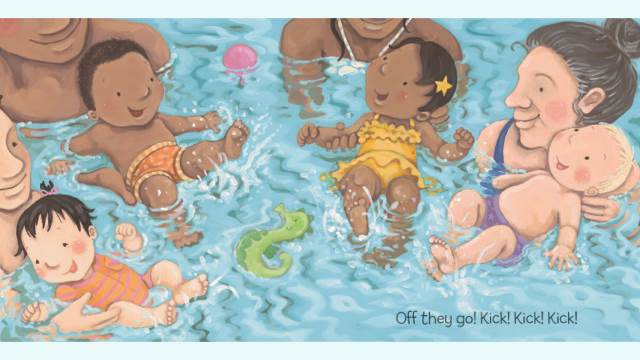
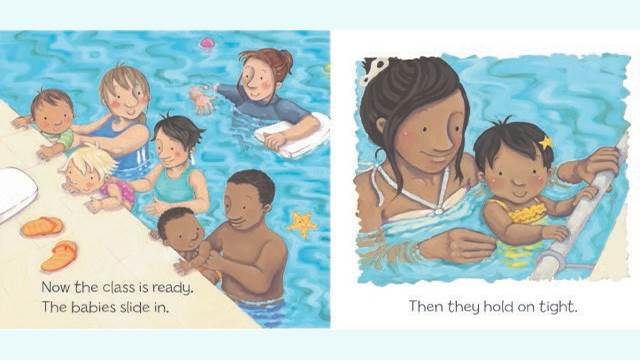
You don't include disabled characters in every book. I get the sense you are careful to ensure that you don't just "shoe-horn" something in at every opportunity?
Absolutely! I really want it to feel natural. Especially in a picture book for the very young - unless the story is about a disability, it's hard to include any disability except a visually obvious one, and I'm not about popping someone into the background for the sake of "inclusion". It felt right and natural here.
Where disability is concerned, the inclusivity is subtle and casual. Was this important to you?
Yes. As I say, there's a very important place for books that are about difficult issues around race or gender or disability. But it is equally important for children to see children of different races, abilities, etc, in regular stories.
I feel strongly that it would be terrible if a child only ever saw someone like themselves in books that are about "issues".
Do you think people may even miss this detail?
I think many people will miss it! But any child who has a foreshortened limb will notice, as will parents of children and friends and siblings - and they are the ones that are important to me. My motivation is not to be seen to be inclusive but to ensure that lots of kids who are under-represented in stories get included in mine. And it is really helpful when a website like this flags it up.
'Diversity' has recently become a hot topic in children's literature.
As someone who has worked towards representing all children in books for over 25 years, do you feel things are finally starting to change?
Some recent developments are really, really positive, and I celebrate the fact that mainstream publishers (and I hope booksellers) are beginning to acknowledge that there is a huge hunger and market for a far greater range of stories than they might have believed in the past.
I think there are two parts to this: we need more stories that feature a wider range of children; and we need more books written by a wider range of writers (black writers, disabled writers, gay writers, etc, telling their own stories).
What I hope is that it doesn't create a push towards "obvious" diversity; that writers will be pushed to write about diversity or that books which are more obviously about issues will be the ones published. It's moving in the right direction, and hopefully the world will soon be full of stories that include everyone - as a matter of course!
Topics: Bookmark, Disability, Inclusive, Interview, Features





